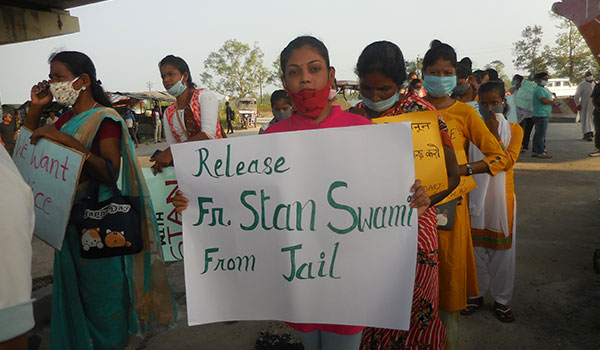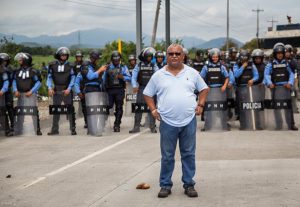The Stories We Tell

“Uncle” Mike was my father’s best buddy from medical school in the Philippines and my baptismal godfather. He died in 1985 when I was 12 years old, and young as I was, I sensed the palpable loss for my family. The news was especially hard on my father who I had never seen weep so openly and unabashedly.
Looking back, I recognize now that those were not only tears of grief, pain and loss, but also of anger, outrage and indignation. Uncle Mike’s lifeless body was found hogtied in the backseat of his van, covered in multiple stab wounds less than 24 hours after he was abducted. He was murdered shortly after revealing to Western media that Ferdinand Marcos, President of the Philippines for over 20 years, had undergone a dual kidney transplant, a procedure his regime tried to keep under wraps. Marcos had ruled the country with an iron fist, and when Uncle Mike, his kidney doctor, revealed to the world his physical frailties, the facade of his government’s invincibility began to crumble.
This revelation accelerated the downfall of the Marcos dictatorship. It was finally taken down by a relatively peaceful revolution. Millions of people took to the streets, demanding freedom from oppression and tyranny and miraculously, the military refused to fire upon them. The end of this dictatorship could not come soon enough for the hundreds of people mourning the deaths or disappearances of their loved ones, people whose only crimes were to fight against the social injustices perpetuated by a corrupt regime. The liberty and freedom of one nation were paid for by the deaths and suffering of individuals who dared speak the truth.
Decades later, I find myself listening to similar stories of tragedy and loss, of hope and triumph from Canadian Jesuits International’s (CJI) Jesuit partners in the Global South.
In India, Fr Stan Swamy SJ and 15 other human rights defenders have been incarcerated due to unfounded accusations of links to terrorist forces. Fr Stan, an 83 year-old Jesuit suffering from Parkinson’s disease, has been harassed and jailed because he has stood up for the rights of Indigenous people (Adivasis) in India, especially the youth and those whose voices have been suppressed.
In Honduras, Fr Melo, journalists and human rights defenders at Radio Progreso-ERIC (Reflection, Investigation and Communications Team) accompany Hondurans, strengthen human rights and promote economic, social and political alternatives for the well-being of marginalized communities. They face violent opposition and frequent death threats because of their work. In recent years, a few of their colleagues and friends have been assassinated.

Fr. Melo at a pro-democracy gathering in Honduras. Credi: Radio Progreso ERC
In the Dominican Republic, we have heard from our grassroots partners how Canadian mining companies operate with total disregard of the impact their operations have on the environment, health and safety of local communities. Meanwhile, back home, our federal government refuses to empower the Canadian Ombudsperson for Responsible Enterprise to enable her to fully investigate human rights abuses made by Canadian corporations overseas.
We at CJI have this privilege of hearing firsthand the challenges faced by our partners and the communities they work with. With that comes a responsibility to ensure that our Canadian supporters and friends hear these stories.
These narratives are not theirs alone, they are ours, too. In our globalized world, what we do or fail to do in Canada affects people elsewhere. Most of us have experienced injustice, have known grief and what it feels like to lose a loved one. Let us stand in solidarity with our brothers and sisters in Africa, Asia and Latin America in their fight for equality and social justice. Their fight is our fight.
I still mourn the loss of Uncle Mike. He was not the first person to die because he told the truth and he won’t be the last one either. But the truth he revealed, and the narrative he became part of set a nation free. There is power in telling a story. Stories can embolden people to take to the streets and demand change. They can give people the courage to continue fighting for the recognition of human rights at the cost of their own personal freedom.
Let us continue listening to people’s stories and sharing them. More importantly, let us learn from them. Then, freedom, justice and equality will never have to come at the cost of a human life ever again.
To learn more about the work of Canadian Jesuits International and its Jesuit partners in the Global South, please visit: canadianjesuitsinternational.ca.




Vicky Chen
Posted at 06:14h, 27 MayThank you very much for the sharing of your personal loss, and the work of Canadian Jesuits International. Jesus too was murdered because he told the truth.
Enid Robins-Holm
Posted at 12:01h, 27 MayVery well said Victor!
Philip Shano
Posted at 18:50h, 27 MayThanks for the post. You have offered an excellent piece, weaving together your life, the Philippines, and the concerns of CJI. Thanks so much
Connie SHAW
Posted at 20:08h, 27 MayThank you for sharing your stories. Most moving and inspiring
Jenny Cafiso
Posted at 22:18h, 27 Maya beautiful reflection on the power of stories Victor. Thank you.